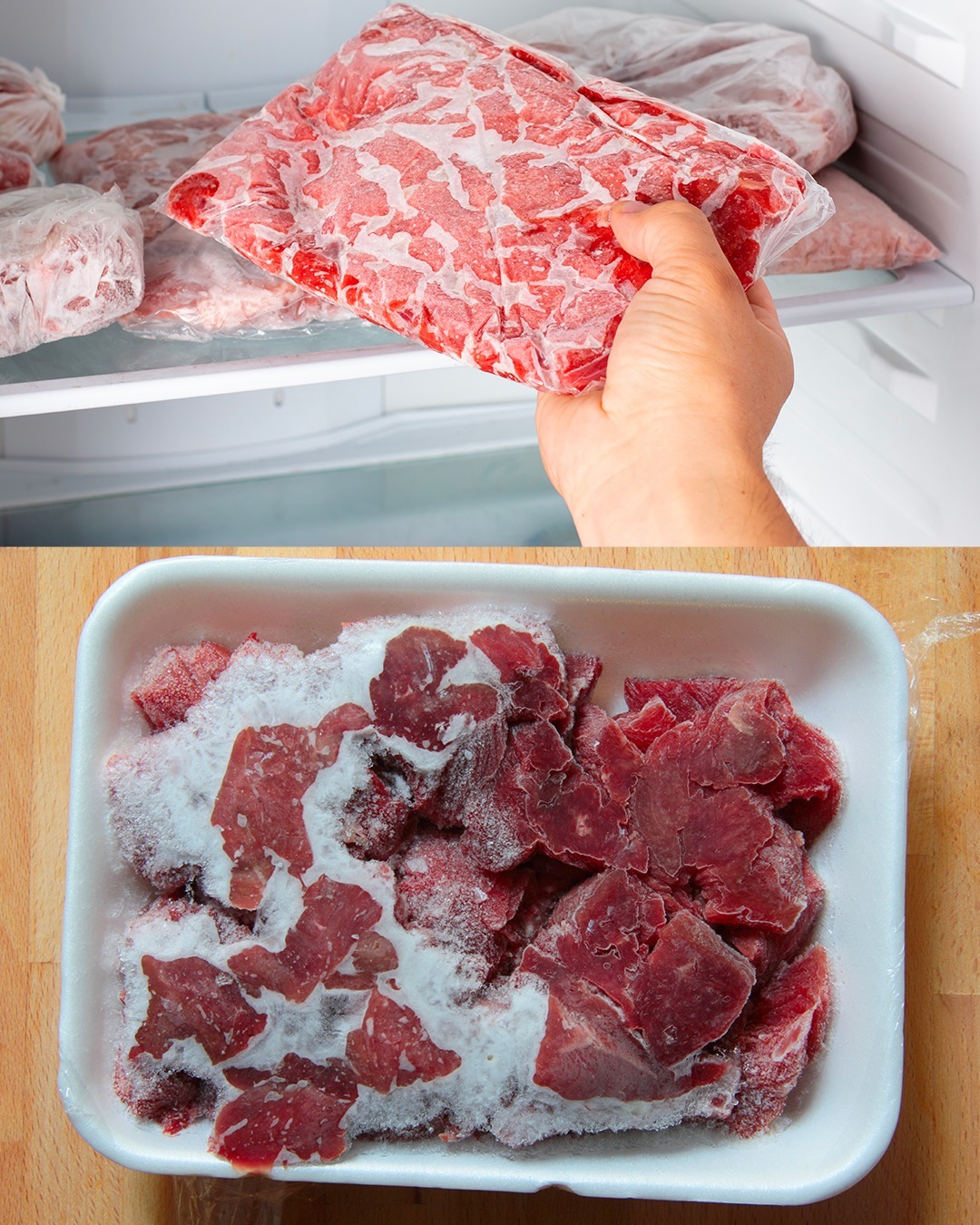ADVERTISEMENT
Seafood
- Fatty Fish (salmon, mackerel): 2–3 months
- Lean Fish (cod, haddock, flounder): 6 months
- Shellfish (shrimp, scallops, lobster): 3–6 months
- Crab Legs: 6 months
Vegetables
- Most Vegetables (like carrots, corn, peas, green beans, etc.): 8–12 months
- Tip: To maintain the best texture, blanch vegetables (briefly boil or steam them) before freezing to preserve flavor and nutrients.
Fruits
- Berries, Cherries, and Grapes: 10–12 months
- Pineapple, Mango, Peaches, and Apples: 6–12 months
- Citrus (oranges, lemons, limes): 3–4 months (best for juicing)
- Bananas: 2–3 months (best used in smoothies or baking after freezing)
Dairy
- Cheese (hard cheeses like cheddar, mozzarella): 6 months
- Butter: 6–9 months
- Milk: 3–6 months (can separate after thawing, so shake well before using)
- Cream (heavy cream, whipping cream): 3–4 months
Baked Goods
- Bread: 3–6 months
- Cakes & Muffins: 2–4 months
- Cookies: 6 months
- Pie (fruit or custard): 3–6 months
Leftovers
- Soups, Stews, and Casseroles: 2–3 months
- Cooked Meat & Poultry: 2–6 months
- Cooked Vegetables: 10–12 months
- Rice or Pasta: 1–2 months (best when frozen with a sauce)
Prepared Meals
- Lasagna or Meatballs: 2–3 months
- Pizza: 1–2 months (best when frozen before baking)
- Stir-fry or Wraps: 2–3 months
Factors That Affect Freezer Storage Times
While the above guidelines provide general recommendations, several factors can impact how long food stays fresh in the freezer:
- Storage Conditions: Proper packaging is essential. Foods that are not well-wrapped or sealed will suffer from freezer burn or the loss of flavor and nutrients. Use airtight containers, heavy-duty freezer bags, or plastic wrap to protect food.
- Freezer Temperature: For best results, keep your freezer at 0°F (-18°C). This ensures that the food remains safely frozen and doesn’t degrade over time.
- Initial Quality of Food: The quality of food before it’s frozen also affects how well it will freeze. Fresh, high-quality food will retain more flavor and texture after freezing compared to food that’s near its expiration date.
- Freezing Method: Rapid freezing is key to maintaining food quality. The faster food freezes, the fewer ice crystals it will form, which helps preserve texture. Avoid overcrowding your freezer to ensure good air circulation and efficient freezing.
How to Avoid Freezer Burn and Keep Food Fresh
Freezer burn occurs when air reaches the food, causing it to dehydrate and develop ice crystals on the surface. While freezer-burned food is safe to eat, it may have a dry, tough texture and lack flavor. Here’s how to prevent freezer burn and keep your food as fresh as possible:
- Use Proper Packaging: Invest in high-quality freezer bags, vacuum-sealed bags, or airtight containers. Remove as much air as possible before sealing.
- Wrap Food Tight: For meats, wrap them in plastic wrap before placing them in a freezer bag or container to prevent air exposure.
- Label and Date: Label all frozen foods with the date they were frozen. This will help you keep track of how long they’ve been in the freezer.
- Use a Freezer Thermometer: Ensure your freezer is at the optimal temperature (0°F or -18°C) for preserving food.
Signs Food May Have Gone Bad in the Freezer
While frozen food can last for months, there are some signs that it may no longer be safe or enjoyable to eat:
- Discoloration: Foods that are discolored (like meat or vegetables) may have experienced freezer burn or have been in the freezer too long.
- Off Smell: If food has developed a strange odor after being thawed, it’s best to discard it.
- Ice Crystals: Large ice crystals on food may indicate freezer burn, which can affect the taste and texture.
- Soft or Mushy Texture: If vegetables or fruits are thawed and feel mushy or overly soft, they might have been frozen for too long.
Maximizing Your Freezer’s Efficiency
To make the most of your freezer, try these tips:
- Organize your freezer so that older items are placed at the front and new items at the back. This ensures that food gets used before it overstays its welcome.
- Consider investing in a deep freezer if you frequently store large quantities of food, as they maintain a more consistent temperature.
- Don’t overload your freezer. Overcrowding can prevent air from circulating properly and slow down the freezing process, which could affect food quality.
Conclusion
Freezing food is an excellent way to save money, reduce waste, and have meals ready at your convenience. However, it’s important to know how long food is safe in the freezer to maintain its flavor, texture, and nutritional value. By following proper storage guidelines and using the right techniques, you can ensure that your frozen foods stay fresh and delicious for months.
Next time you freeze food, be sure to label it with the date and follow these storage recommendations to get the most out of your frozen meals. Happy freezing!
ADVERTISEMENT
ADVERTISEMENT
